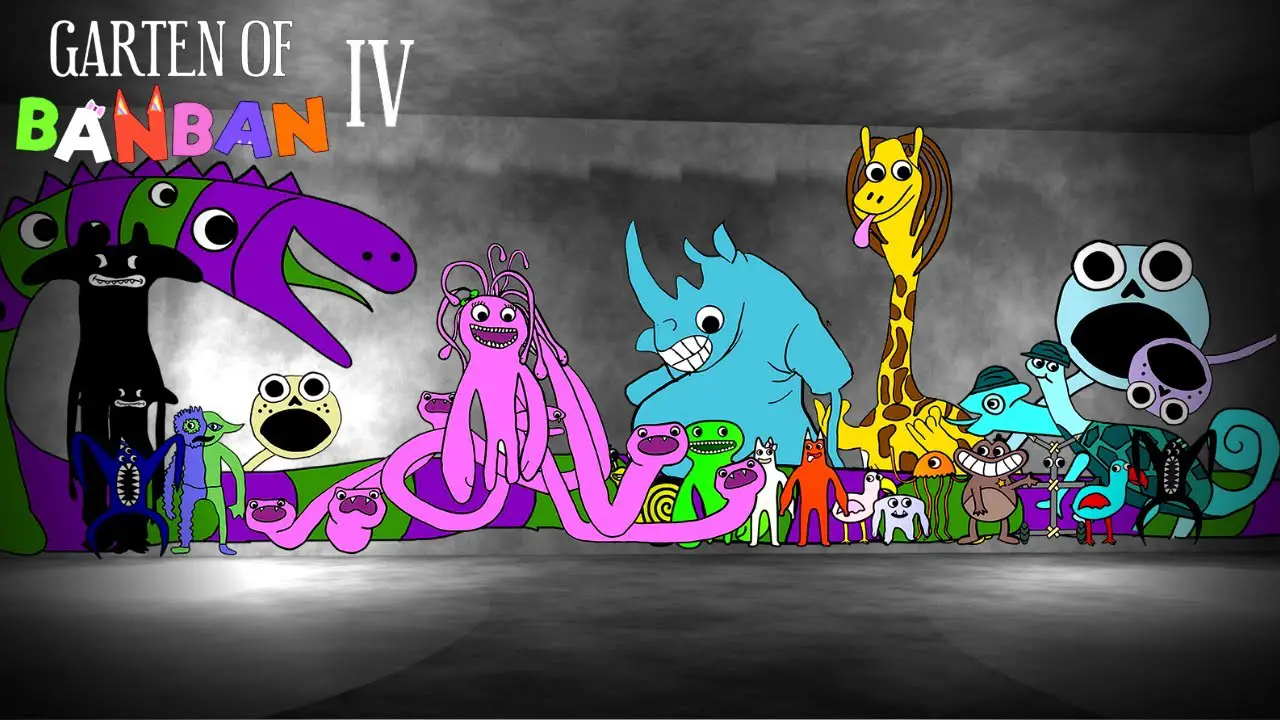Imagine a world where success is not determined by fixed abilities, but rather by a mindset that sees endless possibilities. Welcome to the realm of the growth mindset!
In this universe, mere belief in one’s own potential becomes the catalyst for remarkable achievements. Now, picture this mindset flourishing not just within individuals, but within an entire family unit.
As parents, siblings, and children join forces to embrace growth-oriented thinking, the possibilities become boundless. In this article, we will explore the transformative power of a growth mindset and reveal the secrets to instilling it within your own family.
Get ready to redefine what is possible and unlock the true potential of your loved ones!
Importance Of A Growth Mindset In Individuals’ Lives
The adoption of a growth mindset is crucial for personal development and success in various aspects of life. A growth mindset entails the belief that talents and abilities are not fixed traits but can be developed through hard work, effective strategies, and input from others.
This mindset empowers individuals to embrace challenges, learn from failures, and continuously improve themselves.
When individuals possess a growth mindset, they approach tasks and goals with enthusiasm and resilience. They see setbacks as opportunities for growth rather than as indicators of their inherent shortcomings.
In contrast, individuals with a fixed mindset believe that their talents and abilities are innate and cannot be easily changed, leading to a lack of motivation, resistance to challenges, and a fear of failure.
A growth mindset has been linked to numerous benefits in individuals’ lives, including:
Understanding The Concept Of Growth Mindset
The concept of a growth mindset was introduced by psychologist Carol Dweck and has gained significant attention in the field of psychology and education. In simple terms, a growth mindset is the belief that intelligence, abilities, and skills can be developed through effort, effective strategies, and learning from mistakes.
Individuals with a growth mindset understand that their abilities are not fixed, but can be improved with practice and deliberate effort. They have a positive attitude towards challenges, knowing that they provide an opportunity for personal growth.
They are also open to feedback and willing to learn from others.
In contrast, individuals with a fixed mindset believe that their intelligence and abilities are fixed traits that cannot be easily changed. They see failure and challenges as indications of their lack of ability rather than as opportunities for growth.
This mindset can limit personal development and hinder individuals from reaching their full potential.
Differentiating Growth Mindset From Fixed Mindset
To fully grasp the concept of a growth mindset, it is important to understand the key differences between a growth mindset and a fixed mindset.
A growth mindset involves believing that intelligence and abilities are not fixed but can be developed through hard work, effective strategies, and input from others. Individuals with a growth mindset embrace challenges, persist in the face of obstacles, and view setbacks as opportunities for learning and personal growth.
On the other hand, a fixed mindset entails the belief that intelligence and abilities are innate and cannot be easily changed. Individuals with a fixed mindset may avoid challenges out of fear of failure, see effort as fruitless, and view setbacks as evidence of their lack of ability.
It is important to note that individuals can have a mix of both mindsets in different areas of their lives. Developing a growth mindset requires self-awareness and a commitment to challenging fixed mindset thoughts and beliefs.
Common Misconceptions About Growth Mindset
There are several common misconceptions about the concept of a growth mindset that can hinder individuals from fully understanding and embracing it. These misconceptions can lead to a limited understanding of how to encourage a growth mindset in themselves and in their families.
One common misconception is that a growth mindset is solely about flexibility or praising effort. While a growth mindset does involve being open to new ideas and strategies, it goes beyond simply valuing effort.
It includes embracing challenges, learning from failures, seeking feedback, and continuously improving oneself.
Another misconception is that having a growth mindset means believing that anyone can become an expert in any field with enough practice. While a growth mindset acknowledges the potential for improvement, it also recognizes that individuals have unique strengths and weaknesses.
It does not imply that everyone can achieve the same level of mastery in any given domain.
It is important to dispel these misconceptions and develop a nuanced understanding of a growth mindset to effectively encourage its adoption in oneself and in the family context.
Deep Engagement In Processes For Developing A Growth Mindset
Simply talking about a growth mindset is not enough. To truly encourage and develop a growth mindset in your family, deep engagement in processes that promote growth and learning is essential.
This includes trying new strategies, taking appropriate risks, and learning from failures.
One key aspect of developing a growth mindset is the ability to embrace challenges. Encourage your family members to step outside their comfort zones and take on tasks that may initially seem difficult or intimidating.
Emphasize the importance of effort, practice, and perseverance in the face of challenges. Celebrating the process of learning and improvement rather than solely focusing on outcomes can foster a growth mindset.
Learning from failures is also crucial for developing a growth mindset. Encourage your family members to reflect on mistakes and setbacks, emphasizing that they provide valuable opportunities for growth and learning.
Help them see failures as temporary and as stepping stones toward success.
Additionally, it is important to foster a collaborative and supportive environment. Encourage your family members to seek feedback and learn from others.
Emphasize the value of collaboration and the idea that no one person has all the answers. Support each other in the pursuit of personal growth and continuously provide opportunities for learning and skill development.
Going Beyond Talk: Encouraging Appropriate Risks And Support For Growth Mindset
While discussing and understanding a growth mindset is important, it is equally important to take action and create an environment that supports and encourages its development.
One way to foster a growth mindset is by encouraging appropriate risks. Help your family members understand that taking risks is an integral part of learning and growth.
Encourage them to try new things, even if there is a possibility of failure. Emphasize that mistakes are opportunities for learning and that growth comes from stepping outside of one’s comfort zone.
Supporting collaboration and co-learning is another key factor in developing a growth mindset. Create opportunities for your family members to work together on projects or solve problems as a team.
Encourage sharing and learning from each other’s experiences. This collaborative approach reinforces the idea that growth is not an individual endeavor, but something that can be achieved through collective effort.
Additionally, facilitate a culture of learning and development by providing resources and opportunities for growth. This can include books, workshops, online courses, or mentorship programs.
Encourage your family members to engage with these resources and actively pursue personal growth.
Remember, fostering a growth mindset goes beyond just talking about it. It requires creating an environment that supports and encourages risk-taking, collaboration, and continuous learning.
Recognizing And Challenging Fixed Mindset Triggers
While developing a growth mindset is important, it is equally crucial to recognize and challenge fixed mindset triggers that can hinder its adoption. Fixed mindset triggers are situations or beliefs that reinforce the idea that abilities are fixed and cannot be changed.
Common fixed mindset triggers include receiving criticism, experiencing failure, comparing oneself to others, or feeling overwhelmed by challenges. When these triggers occur, individuals may be more inclined to adopt a fixed mindset and believe that their abilities are limited.
To encourage a growth mindset in your family, it is important to recognize these triggers and actively challenge them. Encourage your family members to reframe negative experiences as opportunities for growth.
Help them understand that criticism and failure are not indicators of their lack of ability but instead provide valuable feedback and insights.
Encourage your family members to focus on their own progress and growth rather than comparing themselves to others. Emphasize that everyone has their own unique journey and that success is measured by personal improvement rather than external benchmarks.
By recognizing and challenging fixed mindset triggers, you can create a supportive environment that empowers individuals to embrace a growth mindset and overcome self-imposed limitations.
Further Exploration: Angela Duckworth’s Contribution
Further exploration of the growth mindset concept can be done through the work of Angela Duckworth, a prominent psychologist known for her research on grit and resilience.
Angela Duckworth’s book “Grit: The Power of Passion and Perseverance” delves into the importance of cultivating a growth mindset and developing resilience in the pursuit of long-term goals. She argues that while talent and intelligence play a role in success, the key factor is the combination of passion and perseverance in the face of challenges.
Duckworth’s research emphasizes the idea that true success comes from a combination of effort, effective strategies, and resilience. By exploring her work, you can gain a deeper understanding of the components that contribute to the development and maintenance of a growth mindset.
The Role Of Praising Effort In Fostering A Growth Mindset
Praising effort is an effective way to foster a growth mindset in your family. When individuals are praised for their effort, they are more likely to believe that their abilities can be developed through hard work and perseverance.
It is important to emphasize the process of learning and improvement rather than solely focusing on outcomes. When your family members put in effort and work hard towards their goals, praise them for their dedication and perseverance.
This reinforces the belief that success is not solely determined by innate talent but also by effort and commitment.
Key strategies for praising effort and fostering a growth mindset:
By praising effort and highlighting the importance of hard work and commitment, you can instill a growth mindset in your family, motivating them to persist in the face of challenges and continuously strive for personal improvement.
Benefits Of Adopting A Growth Mindset In Education, Business, And Relationships
Adopting a growth mindset can have numerous benefits in various areas of life, including education, business, and relationships. The belief that abilities can be developed through effort and effective strategies leads to increased motivation, resilience, and adaptability.
Benefits in Education:
Benefits in Business:
Benefits in Relationships:
By adopting a growth mindset, individuals are better equipped to navigate the challenges and opportunities that arise in education, business, and relationships, leading to personal growth and success.
Correlation Between Growth Mindset And Academic Success
Research has consistently shown a correlation between a growth mindset and academic success. Students with a growth mindset have been found to achieve higher grades, be more motivated, and have a greater sense of self-efficacy in their academic pursuits.
This link between a growth mindset and academic success can be attributed to several factors. Firstly, students with a growth mindset are more likely to embrace challenges and persist in the face of setbacks.
They view failure as a learning opportunity and are motivated to improve their skills and knowledge.
Secondly, students with a growth mindset are more likely to seek feedback and assistance. They are receptive to constructive criticism and actively engage in the learning process.
By seeking help and utilizing resources, they are able to overcome obstacles and continuously improve their academic performance.
Lastly, a growth mindset promotes a positive attitude towards effort. Students with a growth mindset understand that success requires hard work and consistent effort.
They are willing to invest the time and energy required to achieve their goals, leading to improved academic outcomes.
It is important for families to recognize the correlation between a growth mindset and academic success and actively foster a growth mindset in their children to support their educational journeys.
Growth Mindset Interventions For Improving Academic Performance
Growth mindset interventions have been developed to improve academic performance by promoting a growth mindset in students. These interventions focus on encouraging effort and seeking help, while also providing resources and support for students to adopt a growth mindset.
One effective growth mindset intervention is teaching students about the science of the brain and how it can grow and change with effort and practice. By understanding the malleability of the brain, students are more likely to believe in their ability to improve their skills and succeed academically.
Another intervention is teaching students about effective study strategies and the importance of effort in the learning process. Students are encouraged to adopt a growth mindset by focusing on the process of learning rather than solely on grades or achievements.
They are taught to see challenges and setbacks as opportunities for growth and improvement.
Furthermore, growth mindset interventions often involve providing resources and support for students. This can include one-on-one mentoring, peer tutoring, or access to learning materials and resources.
By providing additional support and encouragement, students are better able to develop a growth mindset and perform well academically.
Effective Methods For Instilling A Growth Mindset In Students
Instilling a growth mindset in students requires effective methods that go beyond traditional educational approaches. While teachers play a significant role in shaping students’ mindsets, direct-to-student programs have been found to be more effective in instilling a growth mindset.
One effective method is teaching students about the concept of a growth mindset and what it entails. By providing clear explanations and examples, students can develop a better understanding of how their beliefs about intelligence and abilities can shape their success.
The use of interactive activities and exercises can also be helpful in instilling a growth mindset in students. These activities can involve challenging fixed mindset thoughts and beliefs, encouraging students to reflect on their strengths and areas for growth, and promoting a positive attitude towards effort and perseverance.
In addition to these methods, it is important to provide ongoing support and feedback to students. Acknowledge their effort and progress, provide constructive criticism, and encourage them to seek help when needed.
By creating a supportive and encouraging learning environment, students are more likely to embrace a growth mindset and thrive academically.
Adopting A Growth Mindset As A Long-Term Solution
It is important to recognize that adopting a growth mindset is not a guaranteed solution for immediate improvement in performance. While a growth mindset can have immediate benefits, its true value lies in its long-term impact on personal development and success.
Developing a growth mindset is a process that takes time and deliberate effort. It requires self-reflection, challenging fixed mindset beliefs, and consistently practicing growth mindset strategies.
By adopting a growth mindset as a long-term solution, individuals are able to cultivate a mindset that fosters continuous improvement, resilience, and a positive attitude towards challenges


